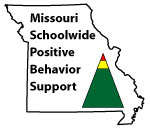Garth Brooks sang the song Unanswered Prayers:
Sometimes I thank God for unanswered prayers
Remember when you're talkin' to the man upstairs
And just because He doesn't answer, doesn't mean He don't care
'Cause some of God's greatest gifts are unanswered prayers

Matthew 5 begins Jesus’s Sermon on the Mount. In particular, verse 5 says, “Blessed are the gentle, for they will inherit the earth.” Perhaps that defines the word meek for us, which is the word used for gentle in the King James and English Standard versions of the Bible.
The dictionary attempts to look at the word meek in a different light. It says that meekness can mean “easily imposed on”. Perhaps that goes a little bit past the Biblical definition. For the one making the request, the Bible defines meekness as humbly acknowledging your dependence on the goodness and grace of God. If you’re the one someone approaches with a request, meekness is the refusal to be arrogant toward them. It becomes more apparent throughout Jesus’s sermon.
Turn in your Bible to Matthew 7: I think it’s important that you see this section of Scripture with your own eyes. In Matthew 7:7-10, the sermon reads like this: “Ask, and it will be given to you; seek, and you will find; knock, and it will be opened to you. For everyone who asks receives, and the one who seeks finds, and to the one who knocks it will be opened. Or what person is there among you who, when his son asks for a loaf of bread, will give him a stone? Or if he asks for a fish, he will not give him a snake, will he? So if you, despite being evil, know how to give good gifts to your children, how much more will your Father who is in heaven give good things to those who ask Him!”
Consider the three words, ask, seek, and knock. We can be sure that these three words are a request that we make of God in prayer and meditation; verse 11 makes that clearer. But do we understand the literal aspect of the words? Jesus is not just talking about prayer and the answers to prayer. This section of the sermon sits right in between verses that talk about condemning others in judgment and another verse (12) that we know as the Golden Rule: “In everything, therefore, treat people the same way you want them to treat you, for this is the Law and the Prophets.”
Not only does Jesus let us know to ask, seek, and knock with God in prayer, but in a big way, He’s telling us, This is how to treat each other in community. Don’t demand of people: ask. Don’t insist they provide for you: seek. Don’t beat down their doors: knock. We might think of it in terms of using the word please. It has been said, “Authority can never be assigned or given to anyone. It must be earned with patience and a genuine investment in the lives of people you are working with. Stop trying to tell people what to do and instead, start asking them for their help. And when necessary, say please.”
Another person said, “A request by its very nature unites.” It’s not about demanding, manipulating, coercing, or telling people what they should or should not do. In fact, this is all about standing beside each other and walking and working alongside each other. Then, of course, there is a chance that the other person can say yes, no, or maybe to our request - the same answers, by the way, that God can give us.
So, in all of this, we recognize that our steady, trustworthy relationships are strengthened by meekness and humility. Strengthened by meekness may sound like an oxymoron, but it is not. It bears repeating that when Jesus uses the word in Matthew 5:5, He defines a fantastic aspect of our character by helping us humbly understand that we are dependent on the grace and goodness of Almighty God, our provider, and it keeps us in check, helping us to refuse to be arrogant with other people.
Saying please involves humility. Whether we are praying to God or making a request of someone else, we must resist saying please in such a way that manipulates and controls in order to get what we want. I believe that’s something called selfishness.
This is a great time of the year. Every year, we ask our kids what they want for Christmas. Every year, we are asked what we would like to open on Christmas morning. I usually don’t know what to tell people when they ask me that question. I know it’s frustrating for them to have to guess at what might make me happy, but I really don’t know what I want. But sometimes, if there is something on our list that we insist that we want or need, we try to trick and manipulate somebody to get it for us. Is there something that you have heavily hinted that you would like to get? Have you asked nicely for it, understanding that the answer could be yes, no, or maybe? Or have you basically just demanded that you must get this specific item, or you’ll be upset? Incidentally, will we be satisfied no matter what the answer is? I tried to let my students know that they should say thank you for the gift before they ever open it. That way their gratitude can still be sincere, instead of opening a gift that they didn’t want and trying to fake their thankfulness.
If you watched the TV show Seinfeld, you know the character on one of the classic episodes known as the “Soup Nazi”. The main characters would enter the Soup Nazi’s place of business and order soup at the counter, the premise being that you had to order your soup in the exact manner in which the Soup Nazi had established. You had to stand straight, move through the line in a specific way. You couldn’t talk in line, and you had to be ready, speak clearly the type and size of soup you wanted, and scoot to the register. Any deviation from the Soup Nazi’s method, and he would shout you out of his business, yelling, “No soup for you!”
Too often, this is how our society operates.
I’m right and you’re wrong.
I demand satisfaction.
Let me speak to your manager.
Who is the meek person? Is he the mousy fellow who sits in a corner chair never interacting with other people out of fear and inferiority? Is she the frumpy, awkward girl who is obviously out-classed by all of her peers? No…and we hear it all the time when we study the topic in Bible classes and sermons: Meekness is not weakness. The toughest among us, the strongest and best looking, the smartest person in the room, can have meek relationships.
Now that we look back at that dictionary definition for the word, maybe it makes more sense to us. The dictionary defines meek as “quiet, gentle, and easily imposed on; submissive.” We may not like that phrase in the middle: “easily imposed on”. It makes it sound like only suckers are meek. When we hear “easily imposed on”, we automatically think “easily taken advantage of”. I don’t think that’s the intention of Jesus, but there is an element of that in our attitudes when we have meek relationships.
Starting in Matthew 5:38, we don’t read about confrontation, manipulation, or forcefully demanding. And this is where we switch to the other person in the relationship: this time, think about being the one who is approached by another person with a request.
It’s the same sermon…and you’ve heard it repeatedly. Jesus says, “You have heard that it was said, ‘Eye for eye, and tooth for tooth.’ But I say to you, do not show opposition against an evil person; but whoever slaps you on your right cheek, turn the other toward him also. And if anyone wants to sue you and take your tunic, let him have your cloak also. Whoever forces you to go one mile, go with him two. Give to him who asks of you, and do not turn away from him who wants to borrow from you.”
He clearly wants us to deal with other people by submitting to them. He challenges us to serve others when we are called on to do so - even going further and doing more for them than they asked, and even when they don’t say please.
One summer, when I was studying for my Master’s degree, I decided to do something I had never experienced to make a little extra money. I applied to work at the McDonald’s at 15th and Rangeline in Joplin. I was the guy at the drive-through, taking people’s orders on the intercom. You’ll remember I don’t go through drive-throughs, but in this case, I was OK, because I was the one in control and I could turn the experience into entertainment. During a busy lunch hour, people would often get stuck at the menu board, waiting for the line to advance to the pay window. And if I was the one taking their order, I would strike up a conversation as if I was working the crowd from my own little stage. I would tell them jokes. I would sing to them. I would bestow upon them wise quotations.
But there are also times at McDonald’s when customers become virtually non-existent. We affectionately call these moments Down Time, and it is during those times that things can get boring. Time slows to a screeching halt. Nobody is cooking, there are no orders being filled, and most workers take the time to talk to each other. But not me. I wanted to take that opportunity to show the teenagers with whom I worked that “If there is time enough to lean, there is time enough to clean.”
We didn’t have computerized menu boards. We still had those boards that could be changed by pressing letters into the plastic grooves. So I made sure the letters were straight and evenly spaced. Then I cleaned off all of the fly specks. I grabbed the stacks of trays and wiped them all down to clean them. I swept the lobby and interacted with customers. I even tackled the restrooms if I had the chance.
It seemed that the result was positive. The managers certainly noticed the servant-leader who came in for an hour or two before going to classes, and I noticed other workers - the ones who stayed for any amount of time - started to do more while I was there. When I left McDonald’s at the end of that summer to go back to teaching, they gave me a going-away party - with a McDonald’s cake and everything.
The truth is, the only way I could work in that setting was if I kept myself busy and made the job interesting and enjoyable. On most of those occasions, nobody told me or even asked me to do the things I did. As a result, I felt like I had more freedom, because I was choosing my own tasks. Others followed my example, and I was treated with respect by the bosses and not like an underling or a slave. I won’t lie to you and say it was my favorite job ever. In fact, it was exhausting. I definitely don’t want to go back.
Do you think that might be what Jesus is saying when He says the meek will “inherit the earth”? Does He mean that when we act in humility and gentleness, we can win more friends and influence more people? Is this His way of telling us that we can catch more flies with honey than with vinegar? That might just be the case.






































